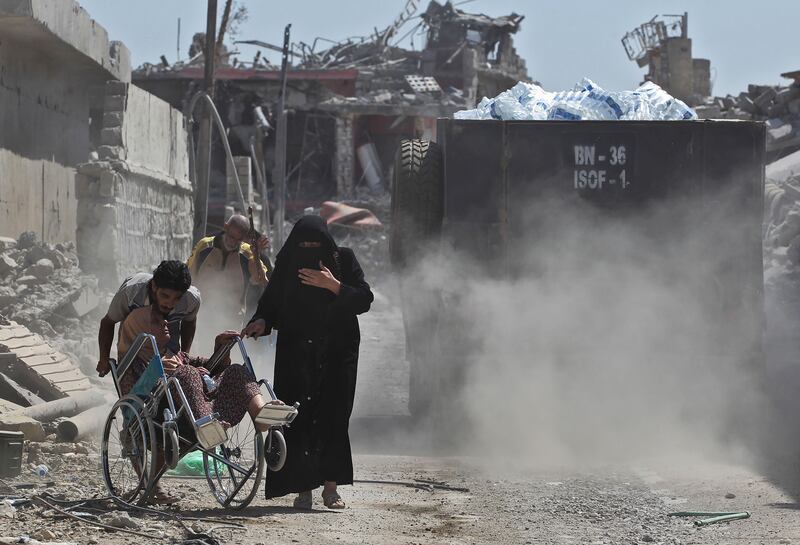Members of the US-led anti-ISIL coalition met for the first of three days of meetings in Washington on Tuesday, aiming to build on the momentum from the extremist group's defeat in Mosul and maximise pressure on the militants.
The meetings — which began a day after Iraqi prime minister Haider Al Abadi declared victory over ISIL in Mosul — were chaired by the US envoy in the fight against the extremists, Brett McGurk.
The coalition's working groups on counter finance, foreign terrorist fighters, stabilisation support, and communications met individually "to assess the campaign and discuss ways to intensify pressure on ISIS in each of these critical areas” according to the US state department.
In one of the meetings, Egypt asked for Qatar to be removed from the coalition but the proposal was rejected by other members, a US official said.
The main summit, attended by all 72 members of the coalition, will take place on Wednesday, with the coalition's so-called "small group" meeting on Thursday “to discuss priorities to build on the progress in Mosul and Raqqa”, the state department added.
The small group consists of about 30 members, including eight from the Middle East — the UAE, Saudi Arabia, Kuwait, Bahrain, Egypt, Iraq, Jordan and Qatar — and Turkey.
The UAE delegation is headed by Sultan Al Shamsi, Assistant Minister for International Development Affairs and includes Abdulnasser Alshaali, Deputy Director of Policy Planning Department.
State department spokesperson Heather Nauert said the three days of meetings will “discuss all aspects of [the anti-ISIL] campaign, including stabilisation support, counter-finance, foreign terror fighters, counter-messaging, among other things”, adding that the meetings are taking place at a key moment in the fight against the extremist group.
While stressing recent gains for Iraqi forces against ISIL, Ms Nauert said: “There is still a lot of work to be done, but the coalition has a strong and proven strategy committed to the total destruction of ISIS while in parallel preparing for the day after”.
Aaron Stein, a resident senior fellow at the Atlantic Council's Rafik Hariri Center for the Middle East, said the coalition’s meetings this week were routine, albeit ones that give members the chance to hear from the US on its objectives for countering ISIL.
“It is always nice to get everyone together, but the major concerns about the [anti-ISIL] campaign in Syria, and the broader questions about who will fund stabilisation [once the militants are defeated] aren’t likely to be resolved,” Mr Stein said.
“I think the coalition is pleasantly surprised about the Raqqa campaign [in Syria], although I think the lower Euphrates river valley component of this has yet to be resolved,” he added, referring to the post-ISIL strategy in this area not having been worked out yet.
Mr Stein also warned that even after the militants' defeat in Mosul, “ISIS still has strongholds in Iraq, and the fight isn’t over”.
“The challenge will be to keep up the pressure on the group after this major victory.”







